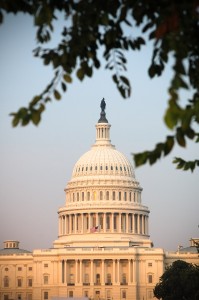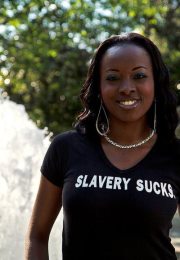 Rep. Judge Ted Poe and Senator John Cornyn cross-filed the End Sex Trafficking Act of 2013 on July 24, 2013. The bill has the purpose of clarifying the federal Trafficking Victims Protection Act (TVPA) and its criminal provision, 18 USC 1591, to include actions by buyers – through the verbs “patronizes or solicits” – as offenses of sex trafficking.
Rep. Judge Ted Poe and Senator John Cornyn cross-filed the End Sex Trafficking Act of 2013 on July 24, 2013. The bill has the purpose of clarifying the federal Trafficking Victims Protection Act (TVPA) and its criminal provision, 18 USC 1591, to include actions by buyers – through the verbs “patronizes or solicits” – as offenses of sex trafficking.
Pending federal court cases in South Dakota ended with the 8th Circuit Court of Appeals decision issued in January 2013 holding that the plain language of 18 USC 1591 includes the actions of buyers through the terms “entices” and “obtains” primarily. Nonetheless, concern remained that the federal law was not sufficiently clear in its intent to include ALL of the actors in the crime of sex trafficking, including buyers. Federal legislators intend to clarify without a doubt that the actions of buyers – demand – is part of the trafficking crime.
This amendment is the product of years of advocacy by Shared Hope and our anti-demand colleagues. Recently, Shared Hope International’s senior policy director Samantha Healy Vardaman and policy counsel Christine Raino authored a law review article published in the University of Memphis Law Review Summer 2013 publication titled Prosecuting Demand as a Crime of Human Trafficking: The Eighth Circuit Decision in United States Vs. Jungers.
The article presents “the case that buyers and attempted buyers of commercial sex acts with minors—including prostitution, pornography, and sexual performance—engage in trafficking activities essential to the crime of trafficking. The Eighth Circuit decision in the Bonestroo and Jungers cases will greatly bolster the ability of prosecutors and law enforcement to combat and deter sex trafficking of minors in America.”
Shared Hope has been undertaking the Demanding Justice Project to emphasize the need for legislation and prosecution that target buyers of sex with children. This research addresses states’ enforcement of laws analyzed under the demand component of the Protected Innocence Challenge. Phase one of the project – a national desk review of buyer cases identified and tracked through the court process – will be featured at Sharing the Hope 2013. The Pathbreaker Awards Gala will also be featured at the event. This year’s Pathbreaker Award recipients are those who have developed innovative strategies to combat demand: Vednita Carter, Assistant U.S. Attorney Cynthia Cordes, and Rep. Ted Poe.
To read Rep. Poe and Sentor Cornyn’s End Sex Trafficking Act of 2013, follow the links below.








